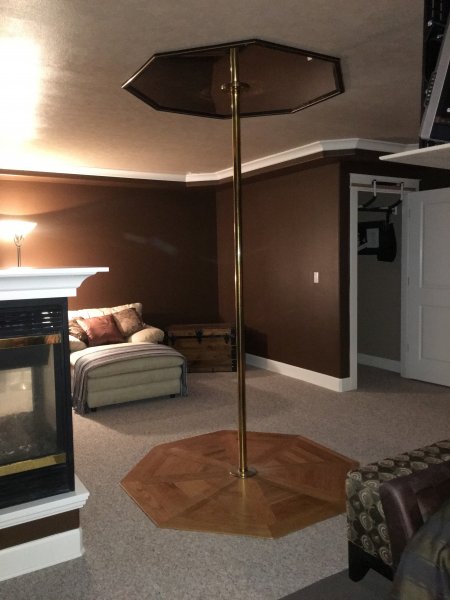Fransisco, it was actually I who wrote that. For some reason, you quote Al M. Regardless, it was our friend Ack who mentioned that to me. The recording is the Janaki Trio, on the Yarlung label. I don't know the details, but perhaps Ack is reading this and may comment. You can look up his system components on his various threads and how he has modified them. Yes, I think it is also an interesting achievement, though it is not clear to me that that was his intention or goal.
I demonstrated this to Al M months ago with the Janaki.
That doesn't mean they are the best, just about equal *in here*, and both
really great as you guys heard, though I still hear slight distortions and limitations with both - that will never cease. I believe we did listen to the HDCD Janaki when you were last in here. So when I said earlier in this thread that I think a system can do justice to both formats, I was speaking from personal experience again.
And I am NOT going to say that I can get all recordings to sound virtually the same. And I feel the latest Vivaldi In Venice LP that I wrote recently about raises the analog bar yet again, but perhaps all it means is that it is just a better recording than the Janaki.
The Janaki renderings are not identical, but very close to each other. There are subtle differences here and there, and primarily the bass is a little fuller with analog (a Pass trait), and HDCD (e.g. the Janaki) helps elevate digital very close to analog, at least in this system. When I had the excellent Spectral 4000SV player in here, they were even closer to each other. Also keep in mind that the Alpha DAC is one promising design to start with - and every time I read TAS's short description in their annual equipment guides, I can't help but nod yes, yes, yes, yes... To be honest, I sometimes find myself overall liking the HDCD Janaki more than the LP, and this goes to show how close to each other they are in here.
To get to this point, I did use my analog as reference to modify and tune the Alpha DAC to it, while also using the 30SV preamp's dedicated DAC-input (whatever that means, but yet another true breakthrough by Keith Johnson) to smooth out some harshness in the DAC's treble, more evident with typical non-HDCD material. And as discussed under my system thread, the DAC's digital volume control affects the sound from ever-so-subtly around the optimal range I found - so that has to be set precisely to a specific value I have settled on - to making it sound wildly euphonic at max gain. On the analog side, we have talked about all the shielding, VTA/SRA, custom platter/LP interface and magnetic arm stabilization elsewhere. At the same time, I have been on a
crusade for years to eliminate noise and distortions all around, especially in the analog and digital sources, as documented under my system thread and elsewhere. I launched on that effort under the belief that both technologies are fundamentally sound, and have not been proven wrong yet.
Based on what I hear in here and elsewhere, I have shredded any fears that digital cannot sound great; that's distant history.
Over the years, I have come to the conclusion that,
with digital, execution is paramount and extra-ordinarily complex - from mastering and producing CDs, which is a phenomenally difficult task that requires extra-ordinary care and precision, MUCH more difficult and precise than analog - to how digital playback is designed and built. Again, I feel the problems with the various formats are in the implementation, not the theory, and they all require great precision. My only quibble with redbook is that it just cannot encode all harmonics, which have been shown with various measurements to go all the way out to 100kHz or higher.
So if we are talking about tuning a system one way or another, well, I have actually tuned all sources (even my tuner) as best as I can, in order to get great sound from all of them. But I also respect all those who choose to go one way or another, and tune to a specific technology.
PS: Next time we meet, remind me to play some of the better Chesky live tracks, and you may just be in shock how realistic they sound.







